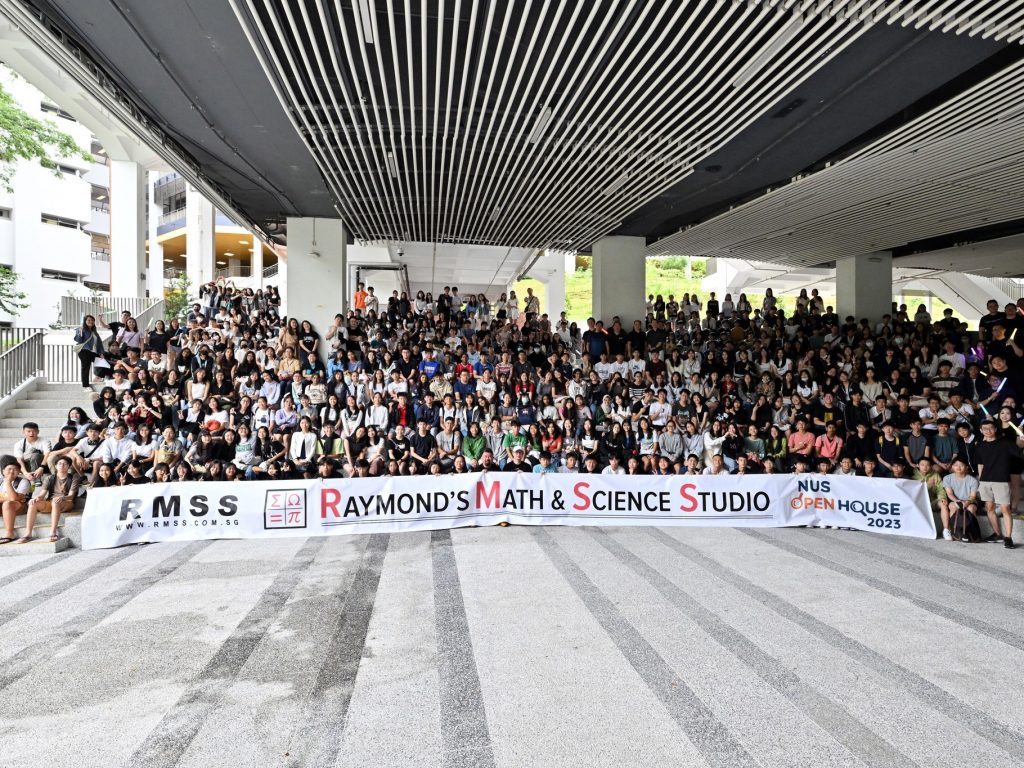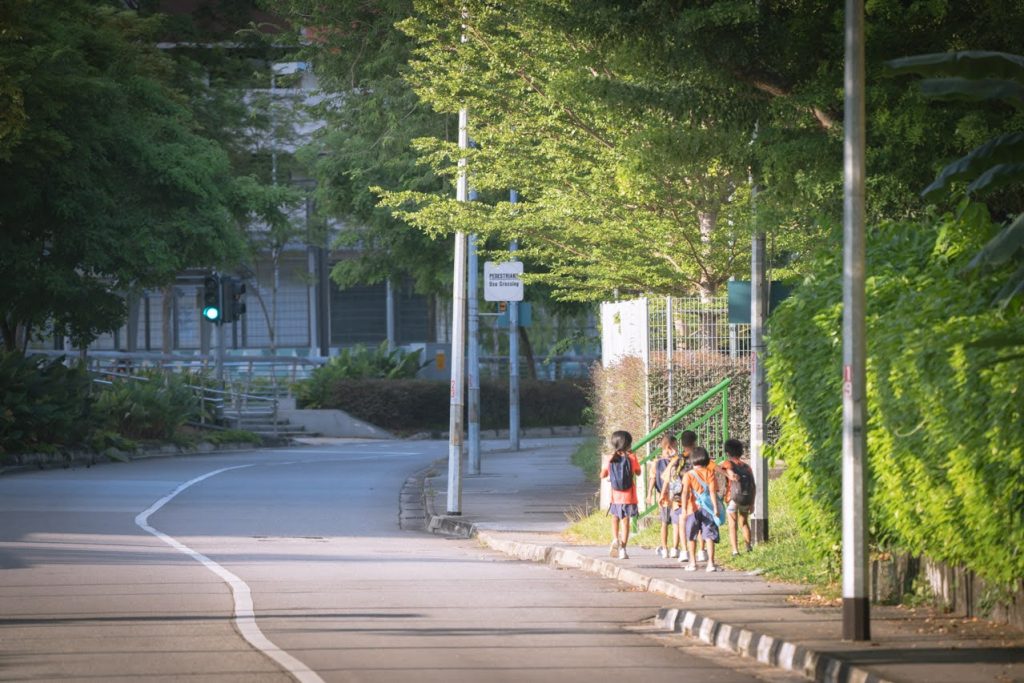Top image: Helen Huang / RICE File Photo
Private tuition is as entrenched in the average Singaporean student’s life as homework.
But a recent Straits Times article highlighted just how much it has changed in recent years.
Beyond dusty old worksheets, students at some tuition centres are treated to a host of extra-curricular (outside of the academic curriculum, that is) activities such as theme park trips, bowling, movies, and even networking events.
And it probably sounds too good to be true, but tuition centres the newspaper spoke to—most of them recognisable names such as Zenith Education Studio and Raymond’s Math & Science Studio (RMSS)—claim that they don’t pass on the costs of these extras to their students.
Short of sounding old, in my day, the only freebies we got were the occasional pens our tutors accidentally left behind.
Churning Out A’s Just Ain’t Enough
It’s probably no coincidence that this push towards more holistic tuition programmes comes amid the Ministry of Education’s (MOE) own efforts to shift from an over-emphasis on grades.
In the past few years, MOE has axed examinations and graded assessments for Primary 1 and 2 students Mid-year examinations for all primary and secondary school levels will be removed by this year.

At the tertiary education level, junior college (JC) and Millennia Institute (MI) students, too, will enjoy mid-year examinations getting phased out by 2024.
Additionally, to reduce the stakes of the A-level examinations—probably any JC student’s biggest stressor—students’ fourth content-based subject won’t be counted in their university admission score from 2026 unless it improves the score. Project Work will also be removed from the score tabulation and will instead be a pass/fail subject.
Hang around any tuition centre (not in a creepy way, of course) and you’ll likely see posters of past student clients and their improved grades. Turning Fs to As has always been the main draw of tuition centres. But if grades become less important, producing good academic results might not be enough to attract or retain clients.
The objective of my tuition classes used to be pretty simple—to learn everything I missed while nodding off at school (sorry, mum). The ‘brand-name’ tuition centres The Straits Times spoke to, however, boast loftier goals, most revolving around keeping students happy and motivated.
Zenith Learning Group’s founder and chief executive Evan Heng speaks of helping students “bond with their tutors and classmates”.
Classicle Club’s founder Brooke Lim says good food helps to “take the stress off” her students.
RMSS’ founder Raymond Loh takes a more scholarly approach to motivating students, bringing them to the National University of Singapore’s (NUS) open house in order to inspire them.
“You don’t have to say much to them. When they come back, they will want to study harder,” Loh tells The Straits Times.

No Frills, No Business?
Sure, every school is a good school, or so MOE says. But is every tuition centre a good one? Not exactly, if you’re going by branding and perks.
Big Tuition—in other words, the huge chains and franchises—outdoes independent tutors and centres by far. Case in point: Zenith Education Studio offers students exclusive discounts on everything from acai bowls to dental treatments.
The disparity is understandable, considering many independent tutors and smaller centres don’t have the manpower or budget to devote to these extras. At the end of the day, tuition really is about catching up on learning in a more bespoke manner, and that’s what they offer, no frills.
But in an era where Big Tuition goes beyond academics, veering into the realm of social and cultural currency, the smaller guys in the market are left behind.
The millennials and zillennials of the RICE office say that in their schooling days, talking about tuition was taboo—you didn’t want your classmates to know you needed extra help.
One Gen Z intern, however, reports a trend of students in her JC joining the same ‘brand-name’ tuition centres “like cults”.
Her reasoning? With all the social activities lined up, it’s only natural to sign up for tuition together with your friends “if you don’t want to socialise with randos”.
Getting the word out about the niche perks they offer has also never been easier for Big Tuition with big social media clout.

Pre-social media, my mum relied on word of mouth from our neighbours when it came time to shortlist tuition teachers. If such extra perks did exist back then, we never knew.
Instead of living the Big Tuition life, I ended up enrolled with private tutors (most of them university students) and small centres in the vicinity of my home. And mind you, this was already a privilege compared to my peers who weren’t able to afford it.
As the eldest daughter of immigrants, I was on my own when it came to figuring out most things to do with higher education when I was taking my A-level examinations in 2012.
While I could have done without some of the more frivolous bonuses like discounted acai bowls, truth be told, I’d have appreciated an excursion to NUS back then. If I’d heard of a tuition centre offering this kind of support, I might have convinced my mum to sign up.
Smaller Tutors Can Still Have Big Results
All this is to say that the smaller players in the tuition industry naturally pale in comparison when it comes to perks. There’s no denying that Big Tuition’s student benefits are attractive, but glorifying them could have the unintended effect of driving students away from independent tutors.
One such tutor, Shalni Doshi, who describes herself as a one-woman show, shared her frustration with The Straits Times article in a Facebook post on March 20. Doshi explained that independent tutors do try to offer perks such as snacks and stationery to encourage their students. But that’s all they can afford to do.
“We do not have multiple teachers working with or for us to multiply revenue. One class at a time slot. That’s it. Yet, we too realise it is about our students’ wellbeing.”
Doshi went on to say that smaller operators, too, are trying to make a difference in their own way, and called for more recognition for their efforts.

For one, they can help to level the playing field for students who can’t afford classes at big tuition chains, or simply need more one-to-one attention instead of bells and whistles. The group tuition market rate for tuition fees for one JC subject is “over $400” a month, according to Zenith Education Studio founder Evan Heng, adding that his centre, which runs group classes, charges $360.
Private tuition rates are a little harder to pin down, but online estimates put the usual part-time one-to-one tutor rate at an estimated $40 to $60 an hour for JC students. Two hours of lessons a week would add up to $320 to $480 a month. That’s a whole lot more individual attention for a cheaper or comparable price.
Other often overlooked operators offering affordable tuition classes include local self-help groups such as Yayasan MENDAKI, CDAC and SINDA, which provide needy students with classes at highly subsidised rates under the Collaborative Tuition Programme (CTP).
Does Size Matter?
Tuition franchises aren’t new. Just look at the generations of Kumon students who graduated before the era of movie ticket perks, bowling outings and free-flow snacks.
But the emergence of cult-favourite chains with their luxe benefits is a little worrying. We already have ‘brand-name’ schools. Do we really need ‘brand-name’ tuition centres too? Tuition is supposed to be an avenue for weaker students to get the help they need—but is it becoming just another area to widen the chasm between the haves and have-nots?
And at the end of the day—or month—it’s the parents who will be footing the tuition fee. It’s up to them to decide if they’ll get more bang for their buck by buying into the chain tuition centre trend or going for a smaller operator.
I’ll be the first to say that bigger isn’t always better. My tutors, most of them independent operators, may not have given me any freebies, but they played a huge role in my education journey. The results speak for themselves.
It wasn’t just the academic help and cramming tips. It was also the time they took to check in on my other subjects, and the reassuring weekly reports they gave my parents.
When it comes down to it, for a struggling student, attention and care are invaluable, whether you get it from a private tutor or a tuition centre. Theme park tickets aren’t.






